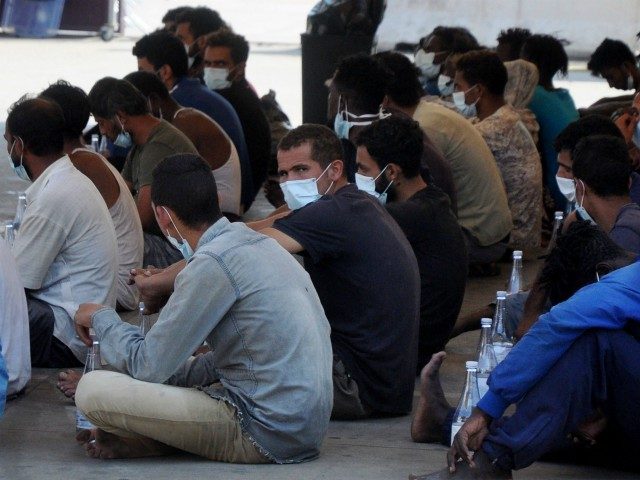Migrants housed in a Sicilian hotel set fires in the accommodation to protest against anti-coronavirus measures.
The Villa Sant’Andrea hotel, located in the town of Valderice, has been used to quarantine migrants to prevent the spread of the Wuhan virus. Italy has struggled to find places to isolate the newly-arrived migrants as numbers continue to surge.
Earlier this week, migrants set fire to mattresses and other furniture, which in turn unleashed a wave of panic through the accommodation, Italian newspaper Il Giornale reports.
Over 130 Migrants Relocated by Italian Govt Test Positive for Coronavirus https://t.co/gAyy0c8UO3
— Breitbart London (@BreitbartLondon) August 1, 2020
Two Tunisians staying at the hotel even went as far as throwing themselves out of windows to escape. They suffered serious injuries and had to be treated at a hospital for fractured bones.
Due to the fires, a part of the hotel is now no longer usable. Authorities continue to monitor the situation for further tensions as many fear more migrants may try and escape quarantine.
Setting fires as a way to get out of quarantine is what Greek authorities have alleged was the motive for the Moria camp fire on the Greek island of Lesbos earlier this month. Greek authorities have arrested Afghan migrants on arson charges.
Migrants 'Revolt' Aboard Italian Coronavirus Quarantine Ship https://t.co/XAdnw9STNJ
— Breitbart London (@BreitbartLondon) August 11, 2020
Italy has seen a surge in new migrant arrivals in recent weeks, from both boats arriving in Sicily and Lampedusa and from migrant taxi NGOs bringing them from the Libyan search and rescue zone.
The Spanish NGO Open Arms was stuck off the coast of Sicily for several days and saw over 100 migrants throw themselves overboard to get to Italy and be picked up by the Italian coastguard.
German NGO Sea-Eye, meanwhile, gave up attempting to dock in Italy this week and announced they would be heading to the French city of Marseille instead.
Open Borders NGO Demands Italy Take More Illegal Migrants Faster https://t.co/9LViNZ2srE
— Breitbart London (@BreitbartLondon) September 5, 2020

COMMENTS
Please let us know if you're having issues with commenting.